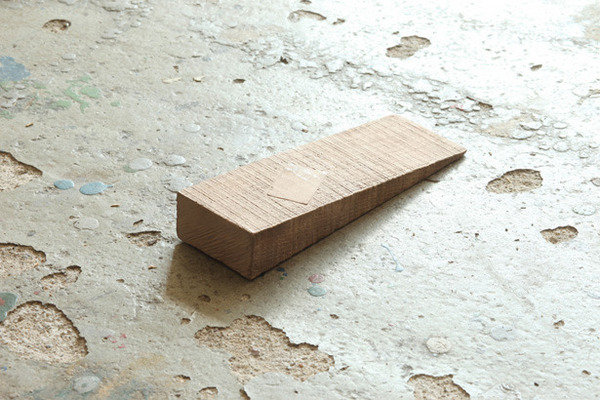Two exhibitions
dal 23/1/2013 al 31/3/2013
Segnalato da
23/1/2013
Two exhibitions
Badischer Kunstverein, Karlsruhe
'Dig it' by Drescher highlights recent works so as to pointedly draw on the artist's oeuvre from this point of origin, exploring the complexity of his artistic creativity over the past several decades. In 'Hold Repeat Pause' Pitoiset and Schwarz present the body as a kind of storage place for social actions.

Curated by Nadja Quante
Jürgen Drescher - dig it
Badischer Kunstverein is pleased to present Jürgen Drescher with his most extensive solo exhibition in Germany to date. For over three decades, Drescher has been negotiating in his works the formal, poetic, and performative potentials of sculpture against the backdrop of artistic, economic, and ecological processes of value creation. The exhibition, which is titled dig it, traces an arc from Drescher's current and recently produced works to his early artwork from the 1980s.
From the beginning of Jürgen Drescher's career, the strategies of transfer and context-shifting have played a central role in his artistic approach—the act of shifting things, artifacts, or even situations from their everyday contexts into the space of art. In 1981, Drescher—while still studying under Klaus Rinke at the art academy in Düsseldorf—had already turned a bar into an installation as his artistic contribution to that year's annual exhibition. The potential sales situation—the annual exhibition as "training" for the art market—was short-circuited with the real vending situation of the bar. In terms of form, the installation had been reduced to essentials, and precisely the circumstance that it was in fact fully functional—Drescher himself was bartending—caused the margins between model and reality, form and performance, cultural and economic value to be blurred in a productive way.
Jürgen Drescher's work of the 1980s and 1990s was predominately characterized by transfer or by the transformation of real objects, as is apparent in the work Korridor (1984), where the threadbare carpet of the hallway in the artist's home has been translated into a display-like wall relief. Yet in recent years Drescher has specifically devoted himself to the technique of metal casting, which he employs to reproduce everyday objects. In taking recourse to the art of casting, Drescher has taken up a sculptural technique that allows things to become an image of themselves: ladders, benches, boxes, or even soft materials like blankets assume an abstract, almost minimalist language of form despite the inherent figurative concreteness of the cast. In addition to calling on casting as a method of reproduction, Drescher has pursued the plastic modeling of figures and figurations, such as the sculpture of Dian Fossey and the gorilla named Digit specially created for this exhibition.
The exhibition at Badischer Kunstverein highlights Jürgen Drescher's more (and most) recent works so as to pointedly draw on the artist's oeuvre from this point of origin, exploring the complexity of his artistic creativity over the past several decades.
Jürgen Drescher (b. 1955, Karlsruhe) lives and works in Berlin.
With the kind support of pbb Stiftung für Kunst und Wissenschaft.
---
Atrium: Émilie Pitoiset / Hanna Schwarz - Hold Repeat Pause
In its atrium, Badischer Kunstverein is showing the artists Émilie Pitoiset and Hanna Schwarz in a joint exhibition. Both artists set out from aspects of movement in dance, gestures, performances, and film narratives, but they do not foreground the movement itself but rather the moment between different body postures. They emphasize the in-between or gap as a place where meanings are generated.
Pitoiset and Schwarz present the body as a kind of storage place for social actions. The undefined and unstable quality thus points to a utopian moment. At the same time, their works also raise questions of historicizing dance and performances and translating dance and choreographies into other media such as film and photography.
Émilie Pitoiset (b. 1980, Noisy-le-Grand) lives and works in Paris.
Hanna Schwarz (b. 1975, Stuttgart) lives and works in London and Berlin.
Opening: 24 January 2013, 7pm
Badischer Kunstverein
Waldstrasse 3, Karlsruhe
Opening hours: Tuesday to Friday from 11:00 a.m. - 7:00 p.m. and
Saturday/Sunday from 11:00 a.m. - 5:00 p.m.
Admission: 3 Euro, reduced rate 1,50 Euro (free for members)



